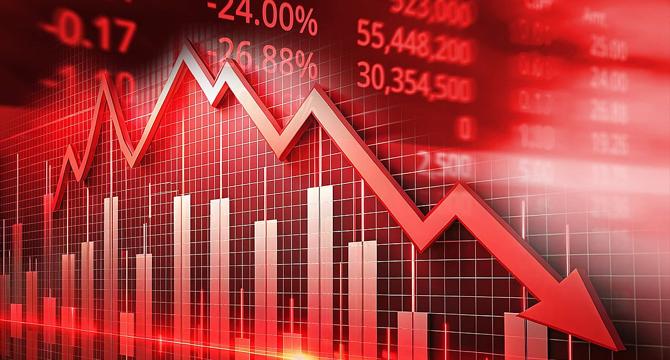Bloomberg Quint
2w
151

Image Credit: Bloomberg Quint
Stock Market Crash: Key Factors Behind 'Black Monday' As Nifty Tumbles 5%
- The Indian stock markets experienced a significant decline on Monday with Nifty 50 dropping by 5.07% to 21,743.65 and Sensex down by 3,939.68 points to 71,425.01, following US President Donald Trump's tariff announcement.
- Asian markets witnessed a massive plunge, the most in 14 years, after Wall Street's decline, leading to global financial market selloff extending for the third consecutive day.
- Various Asian shares, including Chinese, Japanese, South Korean, Australian, and Taiwanese, tumbled due to fears surrounding the trade war's impact on the global economy.
- US stock futures reflected ongoing selling pressure amidst concerns over a looming recession in the world's largest economy, with the S&P 500 and Nasdaq 100 experiencing significant drops.
- Oil prices also experienced a sharp decline, triggered by Saudi Arabia reducing its crude prices and escalating trade tensions, raising concerns about weaker energy demand and a global recession.
- President Trump's tariffs on various countries, including India, China, and the European Union, along with retaliation measures, resulted in heightened trade tensions and market uncertainties.
- Foreign institutional investors remained net sellers for the fifth consecutive day, offloading equities worth significant amounts, leading to concerns about continued market instability.
- Overall, the stock market crash, influenced by global events and trade tensions, showcased heightened volatility, substantial losses, and growing concerns among investors about the future market outlook.
- In the midst of these turbulent market conditions, continual monitoring of developments, policy responses, and global economic indicators remains crucial for investors navigating the stormy financial landscape.
Read Full Article
9 Likes
For uninterrupted reading, download the app